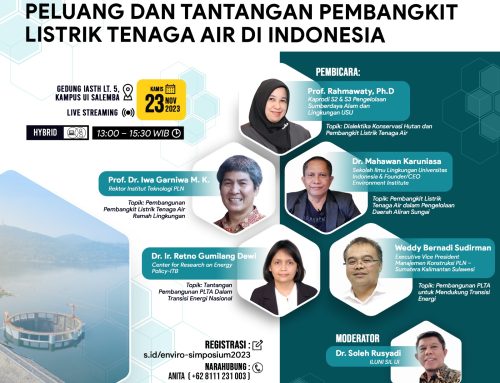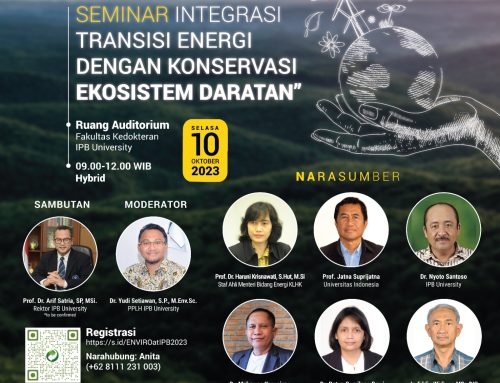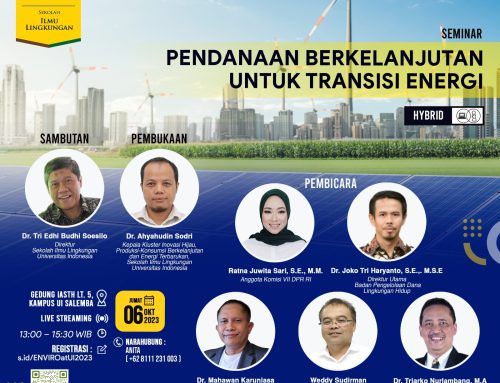
12 September 2018: The Bangkok Climate Change Conference concluded with negotiators making limited progress on advancing the Paris Agreement Work Programme (PAWP), the guidelines required to operationalize the 2015 Paris Agreement on climate change, which are expected to be adopted at the Katowice Climate Change Conference in Poland in December 2018.
The Ad Hoc Working Group on the Paris Agreement (APA), the Subsidiary Body for Implementation (SBI) and the Subsidiary Body for Scientific and Technological Advice (SBSTA) all met from 4-9 September in Bangkok, Thailand.
Negotiations on nearly 20 substantive agenda items took place throughout the week, including on issues related to: mitigation; adaptation; finance; transparency; the global stocktake (GST); response measures; market and non-market approaches; compliance with, and implementation of, the Paris Agreement; and possible additional PAWP items, including matters related to the Adaptation Fund and loss and damage. The ‘Bangkok outcome’ captures progress made across these issues in a 307-page “PAWP compilation,” and mandates the presiding officers to undertake intersessional work to help advance Parties’ deliberations towards the PAWP.
At the close of the meeting, UNFCCC Executive Secretary Patricia Epsinosa characterized progress as “uneven.” Many lamented the slow pace of work, and underscored the need to provide assurances on finance. Other contentious issues relate to: differentiation between developed and developing countries, including under guidance for nationally determined contributions (NDCs); and the ways in which actions are regularly and transparently communicated.
The APA, SBI and SBSTA also agreed on a way to advance work intersessionally, including preparation by the presiding officers of a joint reflections note addressing progress made in Bangkok, and identifying ways forward, including textual proposals, to help advance Parties’ deliberations towards the PAWP. The note will address all PAWP items to ensure their balanced and coordinated consideration, and will be circulated by mid-October to inform political discussions scheduled for the pre-COP meeting, convening from 24-27 October in Krakow, Poland.
Following are brief summaries of the work under each of the bodies.
APA
During the week, the APA Co-Chairs convened bilateral consultations with Parties and groups. SBSTA and SBI Chairs participated on issues of joint interest, such as the format of the PAWP outcome at the 24th session of the Conference of the Parties (COP 24) to the UNFCCC. Substantive APA items were discussed in informal consultations throughout the week, addressing, inter alia: further guidance on the mitigation section of Decision 1/CP.21 (Adoption of the Paris Agreement); adaptation communication; modalities, procedures, and guidelines (MPG) for the transparency framework for action and support; matters related to the GST; and modalities and procedures for the effective operation of the compliance committee.
On each agenda item, delegates considered an issue-specific “tool” that had been released by the APA Co-Chairs in early August to facilitate deliberations in Bangkok.
According to BASIC, transparency arrangements must not replace existing reporting requirements with a weaker system.
During the closing APA contact group, the Co-Facilitators of the informal consultations reported back on progress made. APA Co-Chair Jo Tyndall said some issues had advanced more than others, noting that the Co-Chairs recognize the need to work towards a comparable level of progress on all PAWP items. Gabon, for the African Group, said Parties should be able to provide submissions, and opposed parallel negotiations on the mitigation section of NDCs and the transparency framework in Katowice. Switzerland, for the Environmental Integrity Group (EIG), underlined that the scale of work may require parallel sessions, said that new submissions are not needed, and stressed that a draft legal text would be the best tool to assist parties in their deliberations in Katowice.
SBI
Under the SBI, PAWP items addressed in informal consultations included: common timeframes for NDCs; development of modalities and procedures for the operation and use of an NDC registry; development of modalities and procedures for the operation and use of an adaptation communication registry; the Adaptation Committee’s report and matters relating to the Least Developed Countries (LDCs), considered jointly with the SBSTA; scope of and modalities for the periodic assessment of the Technology Mechanism; and modalities, work programme and functions of the forum on response measures, convened jointly with the SBSTA. Joint informal consultations on the registry/registries for NDCs and adaptation communication also convened. During the SBI closing plenary, the Co-Facilitators for each agenda item reported back on progress.
SBSTA
In the SBSTA, the following items were addressed in contact groups or informal consultations: report of the Adaptation Committee, considered jointly with the SBI; technology framework; modalities, work programme and functions of the forum on response measures, considered jointly with the SBI; matters relating to Paris Agreement Article 6 (market and non-market approaches); and accounting of financial resources provided and mobilized through public interventions. In the closing SBSTA plenary, the Co-Facilitators for each agenda item reported back on their work.
Joint Closing Plenary
During a joint APA, SBI and SBSTA closing plenary, Egypt, for the the Group of 77 and China (G-77/China), stressed the need to move forward on finance and other means of implementation. Australia, for the Umbrella Group, highlighted negotiations on NDC guidance in the context of mitigation, arguing that a bifurcated approach “has no basis” in the Paris Agreement.
Iran, for the Like-Minded Group of Developing Countries (LMDCs), lamented developed countries’ “repeated attempts” to renegotiate the Paris Agreement by “erasing differentiation” in negotiations on compliance, the transparency framework and NDCs in the context of mitigation.
Maldives, for the Alliance of Small Island States (AOSIS), emphasized the need for a COP decision on the Talanoa Dialogue, and said an “omnibus decision” on the PAWP would risk holding back progress on some agenda items. Saudi Arabia, for the Arab Group, urged progress towards a consolidated text to produce an omnibus decision in Katowice.
South Africa, for Brazil, South Africa, India and China (BASIC), emphasized that transparency arrangements must not replace existing reporting requirements with a weaker system. Indonesia stressed the importance of recognizing Parties’ diverse national circumstances, capacities and capabilities in the PAWP.
Indigenous Peoples stressed that the implementation guidelines must reflect a rights-based approach. Youth non-governmental organizations (NGOs) called for inclusion of civil society in the GST and for Paris Agreement Article 6 (market and non-market approaches) to be guided by the principles of equity and environmental integrity.
COP 24 will convene from 3-14 December 2018 in Katowice, Poland. [UNFCCC News Story] [UN News Story] [Video of Closing Press Conference] [IISD Reporting Services Summary Report of Bangkok Climate Change Conference]
Source: IISD



